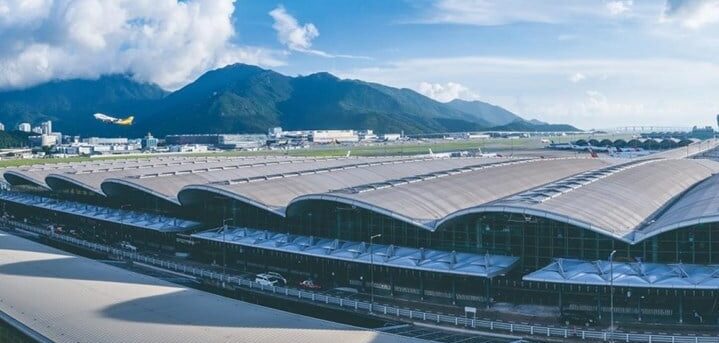Hong Kong International Airport (HKIA) has selected SITA to provide a carbon management platform to monitor data on carbon emissions across the airport environment, helping to track key performance indicators (KPIs) as the airport progresses toward its net zero carbon goal.
SITA’s carbon management platform, to be fully deployed by summer 2023, will collect and aggregate data on carbon emissions from a variety of sources within the airport. This will span Scope 1, 2 and 3 emissions and include data from 29 participating business partners across the airport value chain, overseeing services such as ground handling, aircraft maintenance, air cargo logistics and catering. The platform will provide accurate, clear and customizable visualizations of this data, giving HKIA greater efficiency and precision in its carbon reporting efforts.
HKIA has adopted an airport-wide approach to carbon management, working collaboratively with business partners to set carbon reduction targets and implement measures to accelerate airport-wide carbon reduction. Although HKIA already has an online emissions tracking system, it does not unify emissions data collected from the many sources active in the airport environment, requiring more time-consuming manual processes.
SITA’s solution, supported by net-zero technology partner Envision Digital, aggregates data streams from across the airport environment and participating business partners and consolidates these into a single customizable dashboard. Ensuring the tracking of emissions data alongside key performance indicators toward HKIA’s Net Zero Carbon Pledge, the dashboard interface facilitates carbon performance tracking, providing the granularity to monitor individual emissions sources against specific targets. Having all available data in one place supports HKIA in aligning its carbon reporting to government and industry measurement standards such as ISO and complying with Airports Council International’s Airport Carbon Accreditation program, for which mapping of greenhouse gas emissions is key.
In 2012, the Airport Authority Hong Kong pledged to make HKIA the world’s greenest airport, reinforcing this goal in 2021 with the announcement of its 2050 Net Zero Carbon Pledge, a commitment to achieve net zero carbon emissions by 2050, with a midpoint target of a 55% absolute emissions reduction by 2035 (from a 2018 baseline). Airport Scope 1 and 2 emissions stem largely from fossil fuel energy consumed to operate the terminal building, vehicles and equipment. Scope 3 emissions – indirect emissions originating from the airport’s value chain and business partners – are more difficult to track and represent a significant contributor to overall airport emissions. In the case of HKIA, airport business partners account for more than 50% of airport-wide ground emissions.
Peter Lee, general manager of sustainability at Airport Authority Hong Kong (AAHK), said, “We are committed to achieving the HKIA 2050 Net Zero Carbon Pledge with our business partners. The development of this new carbon management system will provide comprehensive, accurate carbon emissions tracking against the long-term target for both AAHK and each of our pledged business partners and serves as a foundation for transparent reporting. We are pleased to have found a partner in SITA for this project, who have a firm understanding of the complexities of the airport environment and the ability to tailor their solution to suit our needs.”
Sumesh Patel, president of SITA Asia Pacific, said, “As a certified carbon-neutral company currently setting emissions reduction targets aligned with the Science Based Targets initiative Net-Zero Standard, SITA has an unwavering commitment to meeting sustainability goals within our organization and facilitating such efforts across the air transport industry. We applaud HKIA’s proactive efforts toward a net zero goal, and we are proud to apply our expertise and familiarity with HKIA’s operating environment to support its sustainability goals with a precise, customizable and efficient solution.”
To find out more about Hong Kong International Airport’s (HKIA) latest developments, click here.

